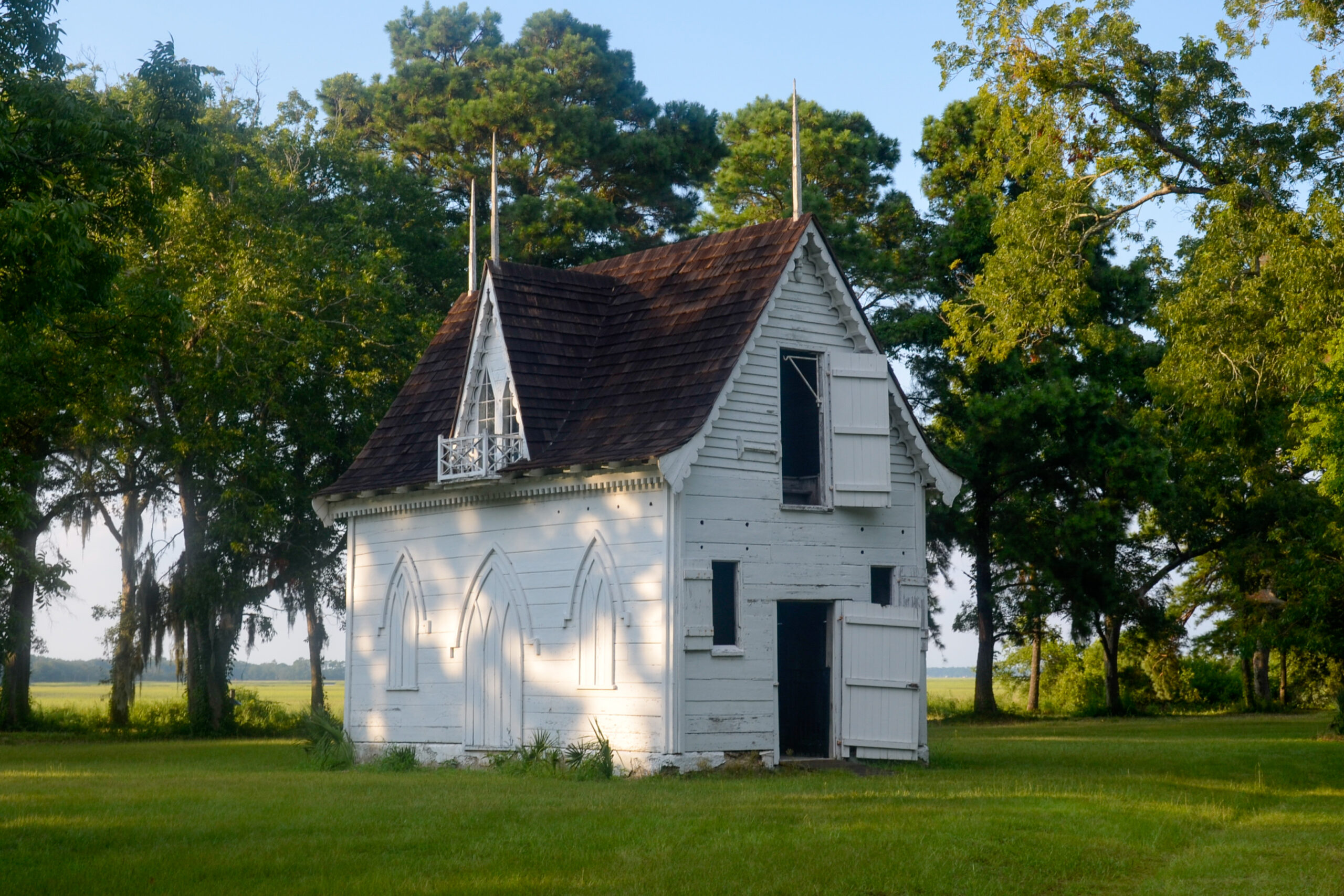Boundaries of Eden
By Glenn Arbery
(Wiseblood Books, 2020)
There’s a kind of American story in which innocence is not lost but sought, where innocence lies in the future and not the past. Our bankruptcy law has long been debtor-friendly compared to Europe; our storytelling, from The Great Gatsby to Meet John Doe, explores both the allure and the impossibility of a clean slate and a new name. A new life is out there in “the territory.” We long to doff the old Adam, but we don’t want to put on Christ—for Christ still bears the Sacred Wounds, and the new American must be unscarred, not restored but reborn, all crimes not forgiven but somehow undone. From Huck Finn to Hamilton (“In New York, you can be a new man!”), the child among the nations imagines itself as a nation of unhappy childhoods.
This is almost always a white narrative. Hamilton, though heavily asterisked, is not quite an exception to that rule. And so it is easy to read in these narratives a desire to undo slavery, “America’s original sin.” Exile and renaming, characteristic experiences of enslavement, suddenly signify hope rather than despair. Writing about the nature of “whiteness,” Phil Christman, the editor of the Michigan Review of Prisoner Creative Writing, argues, “The concept ‘black’ has called people together to be exploited, stolen from, and abused, but by that same token, it has called them together to survive. ‘Whiteness’ has not called a people together except to do crimes and bury the evidence.” In American stories of white reinvention that image is sometimes quite literal.
Glenn Arbery’s new novel, The Boundaries of Eden, is as replete with renaming as the Bible. It’s a story about the terrible longing for innocence, which also takes the idea of “America’s original sin” extremely literally. This project bears less fruit than it could, because Arbery falls into the traps any white writer will encounter when attempting to tell this story.
Eden is the sequel to a previous novel, Bearings and Distances, which I admit I have not read. The back-cover copy assured me that Eden could stand on its own; I was unsure that was true, but I flung myself into this book and tried to swim. The story is told in many short chapters—sometimes less than a page long—with each chapter break representing a shift in point of view among a crowd of narrators. We also get embedded excerpts from newspapers and diaries, adding to the feeling that we’re hearing the voice of a people rather than a person.
But there is a person at the center of this tale. Walter Peach (he had another name before; he’ll have yet a third name by the end) is the editor of the Gallatin, Georgia, newspaper. The novel is mostly set in 2013–14, and Peach’s concerns about “the unfolding devastation of the modern project” tend toward the Trump era: He muses, “The mayor’s son had just decided he was really a girl, for crying out loud,” and his major obsession is the idea that the stream of migrant workers flowing through the town hides a more sinister infiltration by Mexican drug cartels.
When the novel opens, two things have happened. Peach has begun receiving threats to himself and his family, which seem to come from the cartels and validate his fears. Arbery offers plenty of hints that the cartels are not, or not exactly, the real source of the threat, the true nature of which is one of the book’s central mysteries. The other mystery is what happened to Peach’s young son Buford, who turned up all alone on the side of the highway with his memory erased.
Whatever happened to Buford was somehow connected to “Missy’s Garden,” the house where Peach grew up. It may have once been owned by a black conjure woman; it’s now abandoned and covered in kudzu, the Green Godzilla of the South. Wasps rise from the clotting vines when Peach tries to hack his way through. The house seems to pulse with terrible secrets. In the descriptions of the house, and of the fear it evokes in Walter Peach and his family, Arbery exercises one of his greatest talents, for genre horror. Several scenes here are reminiscent of Stephen King, as when Buford emerges from a room in the house with knowledge beyond what a child should grasp.
In the grand Southern Gothic tradition, the house is the family. The tumbledown residence is the secret twin of the majestic manor where Peach now lives, both houses linked by a familial bond going back to the days of slavery. Old, neglected documents tell a sordid tale of buying and selling a woman’s love (since love is what we’re calling it here). The scion of the town’s great family feels himself doomed, damned, and since this is Southern Gothic, a big part of the reason is that he accidentally slept with his own daughter.
Out of all this incest and inherited guilt, certain themes emerge. One is the theme of the given. Life is given, not chosen, yet several characters here do choose new names—new selves. Peach’s name changes are never his choice, but his daughter, for example, is Rose to her parents but Raïssa not only to herself but in the God’s-eye view of the author, who chose her chapter titles. Marriage is at once chosen and, once you’re in it, given; sexual desire is given, but sexual temptation, as these characters know, may be subterraneanly chosen.
The doom-laden scion Braxton Forrest argues that trans people revolt against the given: “Look, Mama, mean old Nature gave me a winkie when I didn’t want one!” (There’s a third jarring episode involving other people’s ideas about transgender people, involving neither Forrest nor Peach, which suggests that this is some kind of touchstone for the author. The book explores the mystery of divergence between body and identity, but never imagines actual trans people with anything but bewilderment or contempt.) This comes in the middle of Forrest’s guilt-ridden, bourbon-fueled ramble about how “being a free man was in effect defined by what your slaves were—and not just by their bondage. You had to rise above whatever you had in common with them in order to be worthy to own them.” Slavery required of slaveholders an “upward transformation” in which the slaveholders became recognizably noble even in their slaves’ eyes, accepting their role as slave, not seeking to remove its limits. (“At least they had to take care of the victims of their injustice personally and for life.” This isn’t true even on its own terms, obviously—when times get tough, slaveholders always sell the breasts that suckled them.)
For Forrest, “Race just confuses the essential issue,” whereas, Peach objects, “I would have said it distills the issue.” Forrest wants to believe that slavery creates nobility, or at least “displace[s]” our common servility, shedding the laboring Old Adam like a coat onto the waiting servant. Peach, by contrast, sees slavery creating both blackness and, although this goes unspoken, whiteness.
The story that unfolds after this scene depicts that slavery-manufactured whiteness: a “given,” though not by nature, which Arbery’s characters don’t acknowledge but can’t escape. Their privilege was never freedom, and true freedom will require accepting the constraints of exile and the surrender of power. That’s a poignant and insightful story, in which the freedom a white American might discover in exile is not innocence but loss, not power but precarity. And on its subtler level, that is the story Eden is telling.
Unfortunately, on the top level it’s telling a heavily symbolic story in which the snake in the Garden is a black man nicknamed Cottonmouth, horrifically wounded by white people and bent on revenge. The story Eden tells about whiteness is often interesting; the story it tells about people of color is always creepy. Latinos appear as extras: witnesses, henchmen, an anonymous chorus of “the Mexicans.” Cottonmouth is that familiar horror figure, the victim whose deformity makes him evil. His disfigured mouth smells of “rotten fruit,” the universal apple, and his tongue is “white as a petal of magnolia,” the specific Southland. He is the most prominent black character, and he’s not solely the Accuser but also a monster. All the black characters are defined by the roles they have to play to make the white people’s story happen. Apparently, Bearings and Distances focuses on one of the black women, Hermia, who unintentionally reveals the ties binding the white and black families. Here she’s a naive progressive who must learn that her “outrage” is further from the truth about slavery than Braxton Forrest’s self-pitying ideas about “love between those enslaved and those who enslaved them.” For those who have read Bearings, perhaps the resolution of Hermia’s story here feels less rushed, perfunctory, and condescending. (What is her relationship with God at the end? What is her relationship with anybody?)
None of the nonwhite characters feel real—and that’s not because Arbery is incapable of writing about people unlike himself. Several of the chapters from white women’s perspectives are persuasive and touching, as Arbery inhabits the persevering Catholic wife Teresa Peach or the town’s “sapphic” spinster. If anything, he writes in a woman’s voice more persuasively than in a man’s, though that may be because, in the book’s seesaw between the realist and the cartoon-allegorical, the men get more of the latter. When he does dive into allegory in a woman’s voice, depicting the blasphemous torture of a naive temptress with a heart of gold, the result is so subtlety-free that it tips from the harrowing into the ridiculous.
Arbery captures certain moments perfectly: a man’s religious anger at the horrific death of his fiancée; Peach’s answering-machine message—a classic, funny and obnoxious and sad. And yet the black characters all feel ersatz.
The novel’s climax cares only about the white family and even rescues them from any ongoing responsibility to the black people with whom their stories have painfully intersected. Black people drop out of the narrative entirely as the family’s exile is supervised by solicitous, omnicompetent, unseen white governors: angels with flaming swords and FBI jackets.
It’s possible to write a novel about, and from the perspective of, white characters, about the longing for future innocence and the ways in which this longing is both universal and racially charged. The story of race in America is too often treated as a story that “belongs” only to black people, when in fact, as the novelist Percival Everett points out, “A lynching is as much a part of a white American’s history as it is mine.” Arbery took on this task. His talents make Eden’s disappointments a harsh reminder of the difficulty of the assignment.
Eve Tushnet’s books include two novels and Tenderness: A Gay Christian’s Guide to Unlearning Rejection and Experiencing God’s Extravagant Love.















